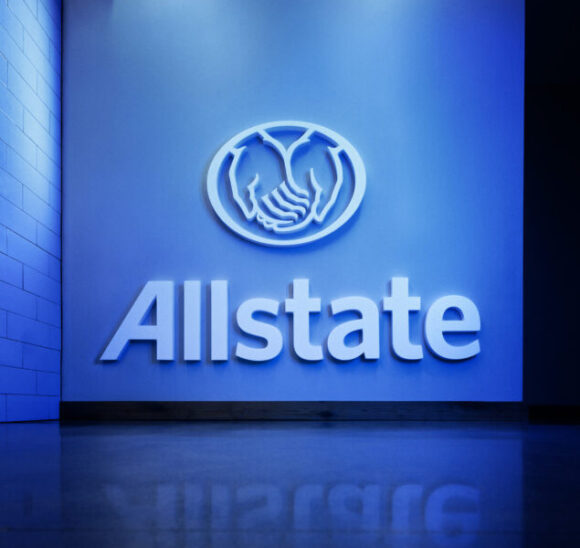Allstate Corp. on Thursday reported January pretax catastrophe losses of $276 million.
The Northbrook, Illinois-based insurer reached its $150 million threshold to report catastrophe losses following several months of low totals. Consolidated catastrophe losses for the fourth quarter 2023 totaled $68 million compared to $779 million during the same quarter the prior year.
Related: Allstate Reverses Q4 Loss With Benefit of Low Cat Losses, Auto Rate Increases
Catastrophe losses in January were $218 million after tax, Allstate said. Two events during the month accounted for about 80% of the $325 million in January catastrophe losses, offset somewhat by favorable reserve re-estimates for prior events, the insurer added.
In addition to reporting catastrophe losses, Allstate gives monthly updates on its auto rate increases as it has for the Allstate brand and the National General nonstandard brand on a regular basis since the beginning of 2022. In January, Allstate auto rate hikes resulted in a premium impact of 1.4% — expected to bring in annualized written premiums of about $363 million.
During a call last week with analysts to discuss fourth quarter earnings, Mario Rizzo, president of property-liability, said Allstate-brand auto rate increases were more than 33% over the last eight quarters — with the highest hikes coming in California, New York, New Jersey, and Texas. He said these states accounted for 36% on auto written premiums in the U.S. In December, Allstate received approvals for auto rate increases in California, New York, and New Jersey.
Related: Mission Accomplished: Allstate Announces Calif., NY, NJ Rate Approvals
Rizzo told analysts that the 30% rate increase California approved allows Allstate to “feel comfortable writing business in California.” He said New Jersey is “kind of the opposite story” because Allstate filed for a 29% increase and was approved for, he said, “just under 17%.”
“As a result of that, we are going to continue to take the more restrictive underwriting actions that we have been taking in New Jersey, which means we will continue to get smaller in New Jersey,” said Rizzo, adding that Allstate has two rate filings pending in the state.
On New York, Rizzo said, “We still need more rate.” The recent 14.6% rate increase approval there helps, but Allstate intends to file for its full rate need soon.
Jess Merten, Allstate chief financial officer, added, “Implemented rate increases and inflation in insured home replacement costs resulted in a 12.1% increase in homeowners insurance average gross written premium in January 2024 compared to the prior year.”
Was this article valuable?
Here are more articles you may enjoy.


 Elon Musk Alone Can’t Explain Tesla’s Owner Exodus
Elon Musk Alone Can’t Explain Tesla’s Owner Exodus  FM Using AI to Elevate Claims to Deliver More Than Just Cost Savings
FM Using AI to Elevate Claims to Deliver More Than Just Cost Savings  UBS Top Executives to Appear at Senate Hearing on Credit Suisse Nazi Accounts
UBS Top Executives to Appear at Senate Hearing on Credit Suisse Nazi Accounts  Why 2026 Is The Tipping Point for The Evolving Role of AI in Law and Claims
Why 2026 Is The Tipping Point for The Evolving Role of AI in Law and Claims 